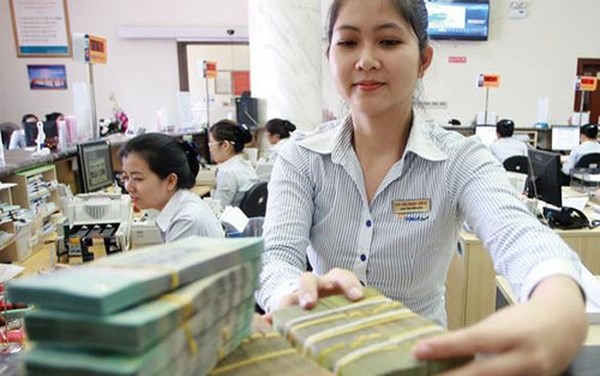Many commercial banks said they expect higher credit limits as they have already used up most, if not all, of their assigned quota for the whole year.

Many commercial banks said they expect higher credit limits as they have already used up most, if not all, of their assigned quota for the whole year.
According to the current regulation, the State Bank of Viet Nam (SBV) sets credit growth limits for each commercial bank depending on the bank’s health at the beginning of the year. This was done to control credit growth for the entire banking system and to support government targets.
A bank CEO who declined to be named said his bank was granted a 14 per cent credit growth quota in 2018 and had so far used up nearly 10 per cent.
However, this is not a surprise as many banks have reported high credit growth in the first few months of the year.
For example, Military Bank’s outstanding loan by the end of the first quarter has already met 89 per cent of its annual target.
HDBank also posted total outstanding loan of VND110.99 trillion (US$4.86 billion) in the first three months of this year, up 30 per cent year-on-year.
According to the SBV, credit growth for the entire banking system reached 6.16 per cent in the first five months of the year.
Because of this, many banks are expected to ask the SBV soon for the expansion of their credit growth limits. However, this will not be easy as the SBV has so far instructed banks to strictly control lending to high-risk sectors such as real estate or securities.
Nguyen Xuan Thanh, Director of the Fulbright Economics Teaching Program, said last month that the SBV should consider developing a roadmap to remove regulations on credit growth limits, as they are incompatible with the country’s achievements in stabilising the national economy.
“It is time to remove the regulations and replace them with indirect ones based on market principles,” Thanh told bizlive.vn.
Thanh said the SBV could set a credit growth target as a guide for the entire banking system so that banks with positive capital sources would not be restrained by its credit growth, instead of assigning a specific credit growth limit for each commercial bank, as is currently done.
He said this current administrative measure is called an ask-give mechanism, which means that each bank is assigned a specific limit and must seek permission from the SBV to expand that limit if needed. This system, however, will not give the country’s banks a competitive advantage, Thanh said.
“For banks whose scale is already large, it is not necessary to pursue very high growth,” he said. “But for small banks with good potential, their credit growth ability is currently being restricted. Such administrative measures do not create healthy competition and motivation for banks.”
The central bank has complied with the credit quota allocation policy since 2012 when many banks accelerated their lending by up to 50 per cent, causing a sharp rise in non-performing loans. According to the SBV, the allocation is aimed at not only ensuring that credit growth serves the economy but also to control the quality of credit and restrict new non-performing loans that may arise in the future. — VNS





